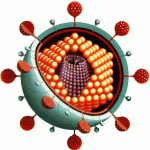Virology
|
24 october 2014 18:00:49 |
| A novel cognitive behaviour therapy for bipolar disorders (Think Effectively About Mood Swings or TEAMS): study protocol for a randomized controlled trial (Epidemiologic Perspectives & Innovations) |
|
Tweet Background:
Existing psychological therapies for bipolar disorders have been found to have mixed results, with a consensus that they provide a significant, but modest, effect on clinical outcomes. Typically, these approaches have focused on promoting strategies to prevent future relapse. An alternative treatment approach, termed `Think Effectively About Mood Swings` (TEAMS) addresses current symptoms, including subclinical hypomania, depression and anxiety, and promotes long-term recovery. Following the publication of a theoretical model, a range of research studies testing the model and a case series have demonstrated positive results. The current study reports the protocol of a feasibility randomized controlled trial to inform a future multi-centre trial.
Methods:
A target number of 84 patients with a diagnosis of bipolar I or II disorder, or bipolar disorder not-otherwise-specified are screened, allocated to a baseline assessment and randomized to either 16 sessions of TEAMS therapy plus treatment-as-usual (TAU) or TAU. Patients complete self-report inventories of depression, anxiety, recovery status and bipolar cognitions targeted by TEAMS. Assessments of diagnosis, bipolar symptoms, medication, access to services and quality of life are conducted by assessors blind to treatment condition at 3, 6, 12 and 18 months post-randomization. The main aim is to evaluate recruitment and retention of participants into both arms of the study, as well as adherence to therapy, to determine feasibility and acceptability. It is predicted that TEAMS plus TAU will reduce self-reported depression in comparison to TAU alone at six months post-randomization. The secondary hypotheses are that TEAMS will reduce the severity of hypomanic symptoms and anxiety, reduce bipolar cognitions, improve social functioning and promote recovery compared to TAU alone at post-treatment and follow-up. The study also incorporates semi-structured interviews about the experiences of previous treatment and the experience of TEAMS therapy that will be subject to qualitative analyses to inform future developments of the approach.DiscussionThe design will provide preliminary evidence of efficacy, feasibility, acceptability, uptake, attrition and barriers to treatment to design a definitive trial of this novel intervention compared to treatment as usual.Trial registration: This trial was registered with Current Controlled Trials (ISRCTN83928726) on registered 25 July 2014. |
| 150 viewsCategory: Pathology, Virology |
 Four key questions about metformin and cancer (Epidemiologic Perspectives & Innovations) Four key questions about metformin and cancer (Epidemiologic Perspectives & Innovations)Comparing 3D Foot Scanning with Conventional Measurement Methods (Epidemiologic Perspectives & Innovations) 
|
| blog comments powered by Disqus |
MyJournals.org
The latest issues of all your favorite science journals on one page
The latest issues of all your favorite science journals on one page



